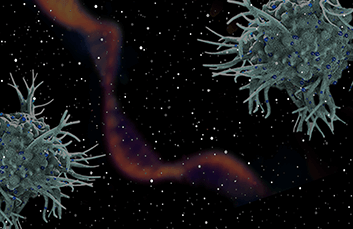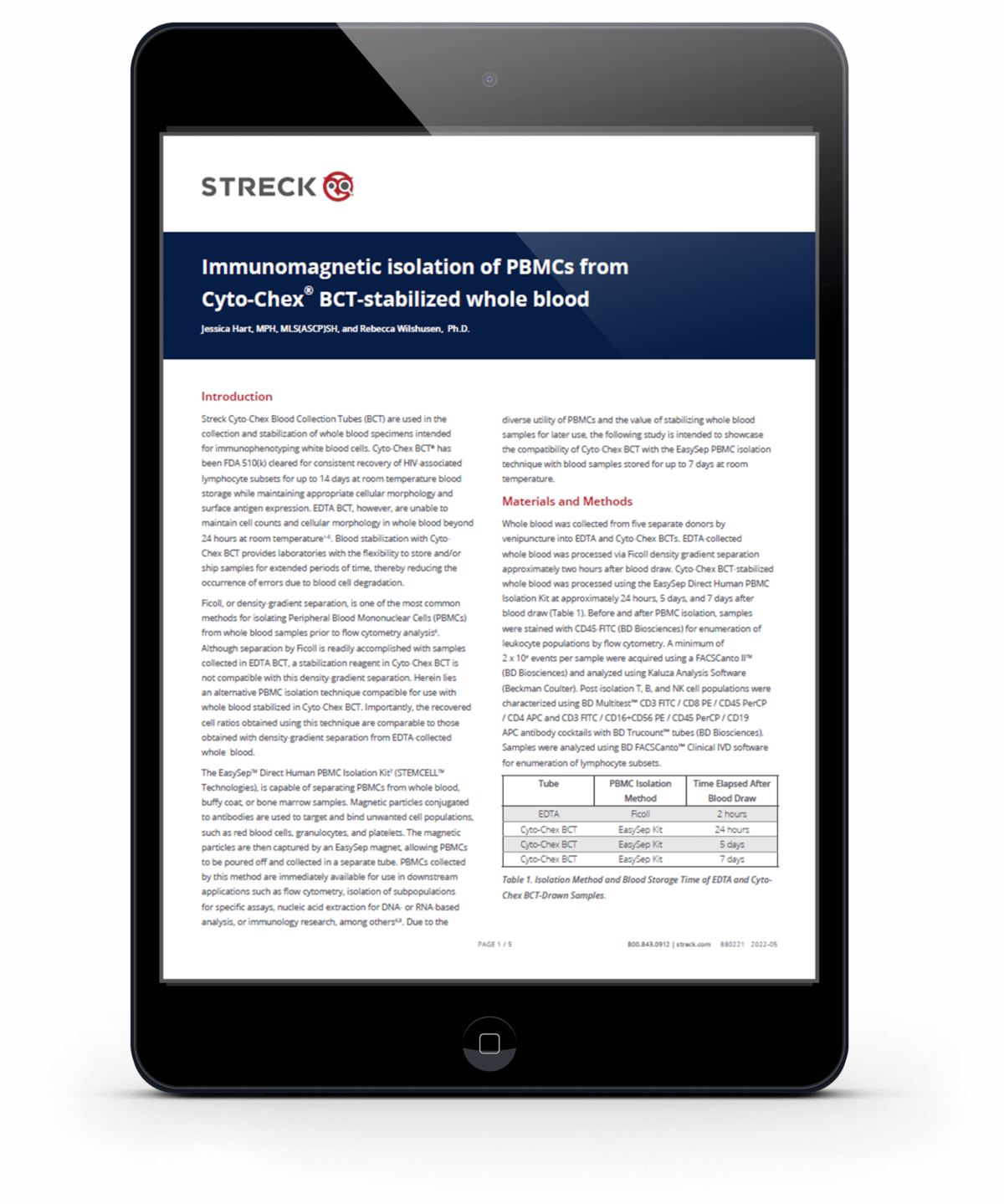Cyto-Chex BCT – PBMC Isolation
Topics Featured
Streck Cyto-Chex® BCT effectively stabilizes immunomagnetic isolated Peripheral Blood Mononuclear Cells (PBMCs) for up to 7 days post blood collection, according to a new study. Sample stabilization with Cyto-Chex BCT provides laboratories with more flexibility to store and ship samples for extended periods of time, thereby reducing the occurrence of errors due to sample degradation.

Cyto-Chex BCT is used for the collection and stabilization of whole blood specimens for immunophenotyping of white blood cells. Cyto-Chex BCT has been FDA 510(k) cleared for consistent recovery of HIV-associated lymphocyte subsets; however, it is not compatible with the most common method for isolating PBMCs, Ficoll density-gradient separation.
Although separation by Ficoll is readily accomplished with samples collected in EDTA Vacutainer® tubes, the reagent is unable to maintain cell counts and cellular morphology in whole blood beyond 24 hours at room temperature.
This study details an alternative PBMC isolation technique, immunomagnetic separation, compatible for use with whole blood stabilized in Cyto-Chex BCT for up to 7 days post blood draw.

Jessica Hart is a certified Medical Laboratory Scientist and Specialist in Hematology, MLS(ASCP)SH, with a Master of Public Health in biostatistics. She previously worked in the clinical hematopathology laboratory at Nebraska Medicine before joining Streck in 2019. Her interests include hematology, flow cytometry, biostatistics, and all things related to the advancement of clinical laboratory science.

Rebecca Wilshusen, Ph.D. earned her doctorate in Pharmacology and Experimental Neuroscience from the University of Nebraska Medical Center. She studied under the tutelage of Dr. Mosley and Dr. Gendelman, with her dissertation work focused on the T cell-mediated mechanisms of neurodegeneration in Parkinson’s disease, for which she was awarded multiple external NIH fellowships. Rebecca joined Streck in 2020 as an R&D Scientist and has since moved on to the role of Product Manager. Her interests include immunology, flow cytometry, and translational medicine.


The Benefits of Glass BCTs


